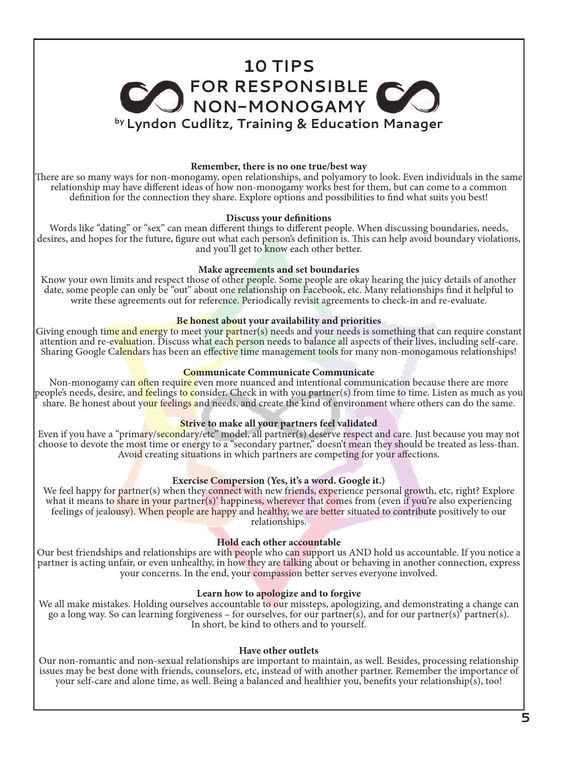Having boundaries in relationships
How to Set Healthy Boundaries in Your Relationship
September 3, 2020
Given the current state of the world, you may be spending more time than ever with your partner. If you find that you are together a lot, it may not always be easy to set necessary boundaries. Perhaps you have already set healthy boundaries for your relationship, but they have been hard to maintain during this time. Setting boundaries (or reevaluating them) in your relationship will ultimately help reduce stress and ensure that you have a healthy dynamic with your partner.
Here are six tips for setting healthy boundaries in your relationship:
Know That Boundaries Are Healthy for Your RelationshipBefore setting boundaries, consider acknowledging
why they are important for you. Boundaries are an integral part of healthy relationships because they help to maintain a balance between you and your partner. They also help minimize conflict, because they establish a precedent for what you both expect from each other. Having boundaries can actually bring you closer to your partner because they are set through open communication.
Communicating transparently is an important part of every healthy relationship. When discussing boundaries with your partner, being honest about what you are comfortable with or not comfortable with will ensure that they know what you truly expect from them. You could even try writing down your expectations so that you are clear about what you want when sharing them with your partner.
Listen to What Your Partner NeedsSince you expect your partner to honor your boundaries, it’s also important to fully listen to their needs as well. Relationships are a two-way street, so you will need to listen to the boundaries they want to set and discuss those as well. Remember, that in a relationship, you should be able to say anything, but the WAY you say it, matters. Consider reading up on soft startups to communicate more effectively.
This tip is especially applicable at the moment. If you’re spending a lot of time together right now, be sure to communicate with each other about when you need time alone. It’s just as important to set aside time for yourself as it is to have quality time with the person you love.
Establish How Comfortable You Are In the Scope of COVID-19Your boundaries surrounding your interactions with friends and family, and your overall social expectations during this time, are likely to have changed. If you haven’t already, consider having a conversation with your partner about how comfortable you both are with being around other people during this time and in what type of setting.
Communicate With RespectHealthy relationships include respect from both sides. The best way to communicate your boundaries with your partner is with compassion, understanding and respect for each other’s expectations.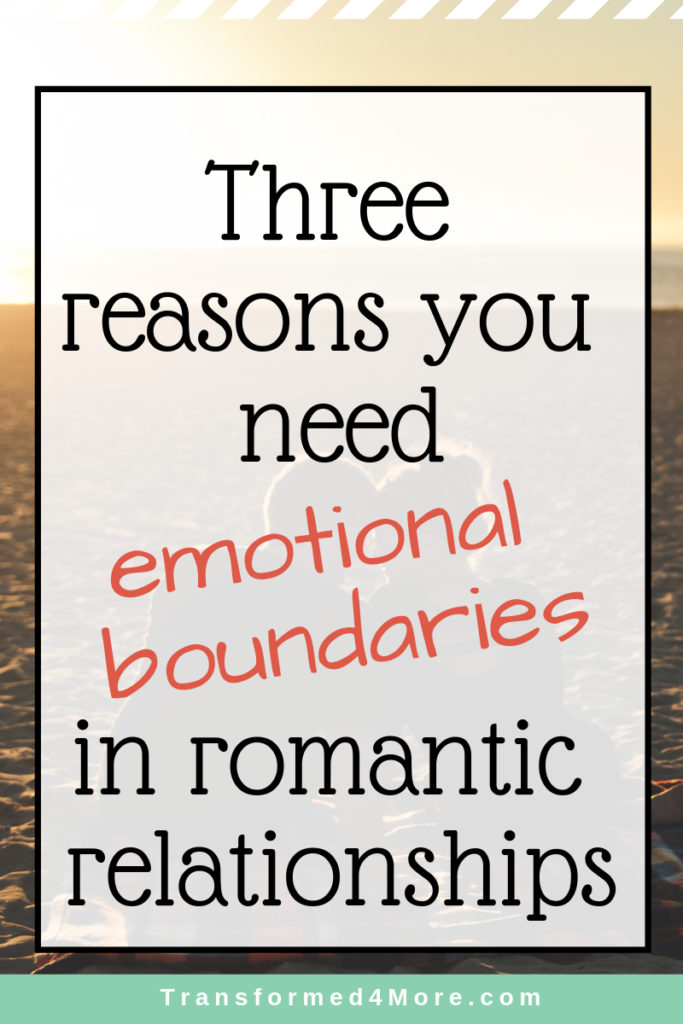 Having respect each time you communicate will ultimately make your relationship healthier and stronger.
Having respect each time you communicate will ultimately make your relationship healthier and stronger.
COVID-19 and Relationships
Expressing Feelings in a Relationship
Cheers to Healthy Relationships
Tips for Saving Your Relationship
If you would like to begin Relationship Enhancement Counseling, request an appointment with Eugene Therapy today.
Setting Healthy Boundaries in Relationships
love & friendship
Whether you’re dealing with romantic partners, family, friends, or coworkers, maintaining healthy boundaries can help you strengthen relationships, avoid unhealthy connections, and improve your self-esteem and overall well-being.
What are healthy boundaries?
You might hear the word “boundaries” and imagine walls that separate you from other people. In a sense, that’s true. But boundaries aren’t necessarily a bad thing. In fact, they’re an important ingredient in healthy, balanced relationships. They're also a crucial part of maintaining your identity, mental health, and physical well-being.
They're also a crucial part of maintaining your identity, mental health, and physical well-being.
Boundaries can include restrictions on physical actions, such as asking a roommate or partner not to look through your phone or not to interrupt when you’re working from home. They can also be psychological, such as asking your spouse to accept that your goals and dreams may not always be the same as theirs.
Healthy boundaries serve to:
- Encourage autonomy and reduce codependent habits.
- Set expectations when interacting with others.
- Give you a sense of empowerment and self-respect.
- Ensure your physical and emotional comfort.
- Clarify individual responsibilities in a relationship.
- Separate your wants, needs, thoughts, and feelings from those of others.
Without healthy boundaries, your relationships can become toxic and unsatisfying and your well-being can suffer. You might feel taken advantage of if a friend keeps asking for money, for example, or feel overwhelmed by stress if you feel the need to solve all of your partner’s emotional problems.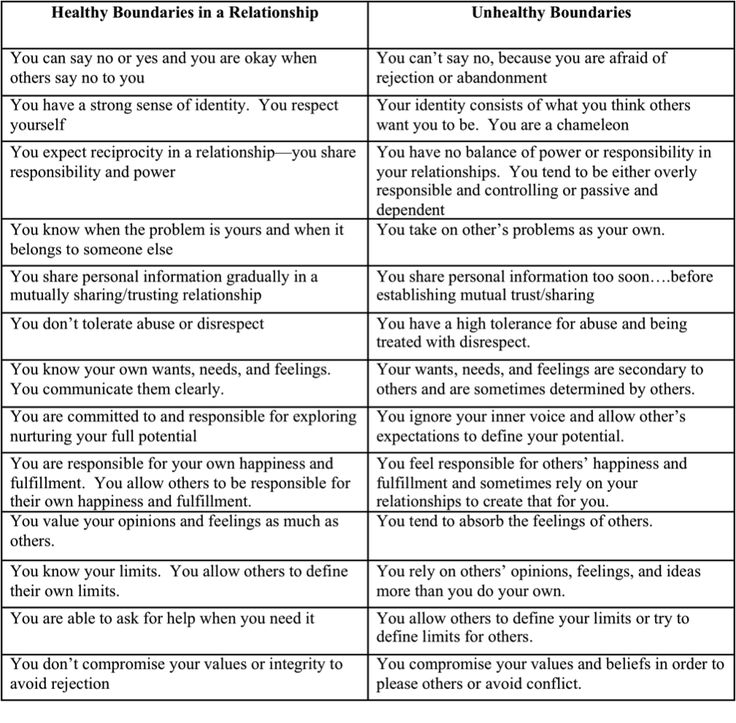 Or if a parent continually invades your privacy, you’ll likely feel resentful. Similarly, if you continually ignore another person’s boundaries, you risk making them feel uncomfortable and damaging the relationship.
Or if a parent continually invades your privacy, you’ll likely feel resentful. Similarly, if you continually ignore another person’s boundaries, you risk making them feel uncomfortable and damaging the relationship.
Boundaries aren’t just necessary in your personal relationships, though. They’re also needed in the workplace, where coworkers or managers might monopolize your time or disregard your needs. Unhealthy boundaries at work can also follow you home and reduce the quality of your personal life.
One study showed that when boundaries are blurred between personal life and work, people experience more emotional exhaustion and less happiness. On the other hand, setting boundaries, particularly when it comes to job duties, can lead to a greater sense of empowerment.
Learning how to set and maintain boundaries can change many aspects of your life, ranging from work to family relations to dating. It all starts with understanding the difference between healthy and unhealthy boundaries.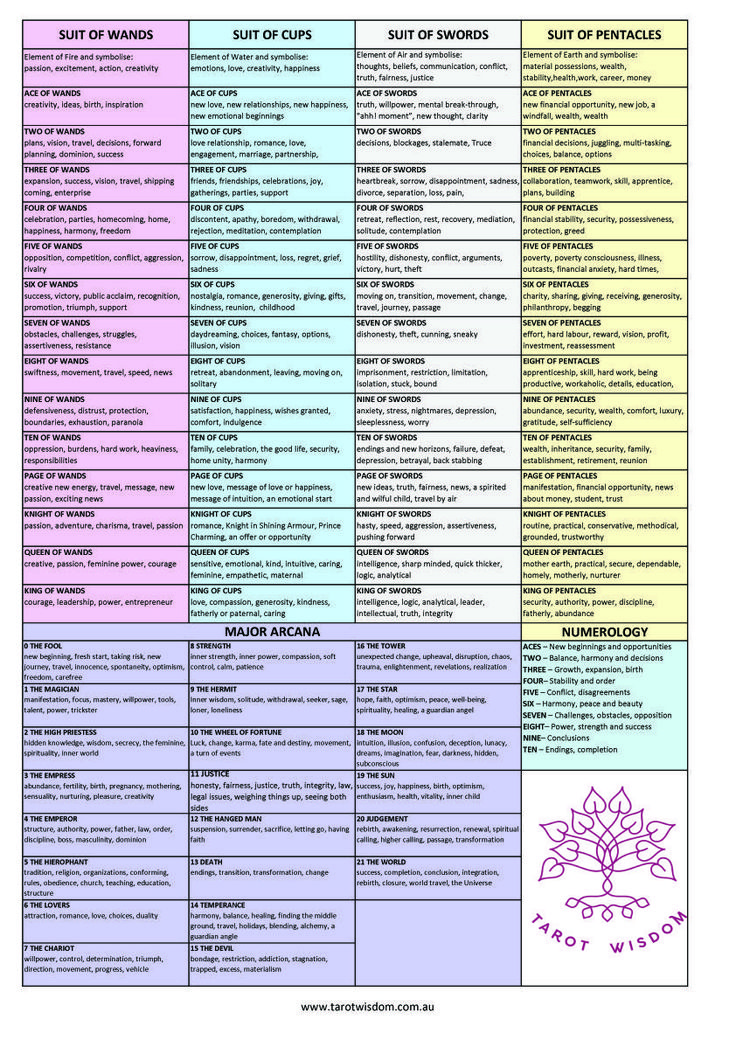
With over 25,000 licensed counselors, BetterHelp has a therapist that fits your needs. Sign up today and get matched.
GET 20% OFF
Types of healthy boundaries
Personal boundaries can come in many forms. However, not every relationship requires you to address every type of boundary. For example, you might need to set physical restrictions with a coworker but not financial ones.
Physical boundaries help keep you comfortable and safe, not just when you’re dealing with strangers, but also when you’re interacting with those closest to you. For example, you might tell someone that you’d prefer handshakes instead of hugs. Or you could tell a friend that you need to take a rest during a lengthy bike ride. If a physical space belongs to you, you can set limitations around that as well. Perhaps you don't want someone to intrude in your bedroom or clutter your office with their items.
Sexual boundaries could involve anything from asking for consent before being physically intimate to checking in with your partner’s comfort level during sex. Even if you’ve been with your partner for years, you should make an ongoing habit of communicating your preferences. You might want to reassess limitations and expectations surrounding things like frequency of sex and contraception use.
Even if you’ve been with your partner for years, you should make an ongoing habit of communicating your preferences. You might want to reassess limitations and expectations surrounding things like frequency of sex and contraception use.
Emotional boundaries ensure that others are respectful of your emotional well- being and internal comfort level. When setting an emotional boundary, you might say something like, “I don't want to talk about this subject while I'm at work because I need to focus.” You might also use these barriers to prevent yourself from feeling overwhelmed by other people’s feelings. For example, you can acknowledge you’re not responsible for how another person reacts to your decision to turn them down for a second date.
Material/financial boundaries extend to your belongings, such as money, clothing, car, or home. If you’re a charitable person, you might have a hard time saying “no” to people who want to borrow items. However, people may intentionally or unintentionally take advantage of your goodwill, and then you may notice your own resentment building.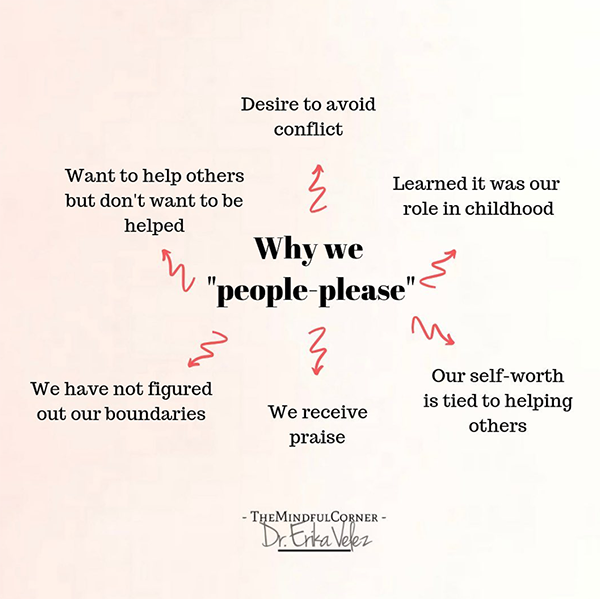 When setting a material restriction, you might say something like, “You can borrow my phone charger, but please put it back when you’re done” or “No, I can’t loan you money for new shoes.”
When setting a material restriction, you might say something like, “You can borrow my phone charger, but please put it back when you’re done” or “No, I can’t loan you money for new shoes.”
[Read: Coping with Financial Stress]
Time boundaries allow you to focus on your priorities at work and in your personal life without feeling crowded by other people’s needs and wants. Imagine that you’ve had a stressful work week and want to spend the weekend recuperating. You might decline a party invite or set a limit on how long you’ll be there. Other time-related restrictions could include asking a friend to avoid calling you during work hours or asking a partner to delay an important conversation until a more convenient time.
Shifting boundaries
Boundaries aren’t etched in stone. You’ll need to adjust them as circumstances change and relationships grow. This can be especially true in long-term relationships. Communication is important as you reevaluate and revise your boundaries.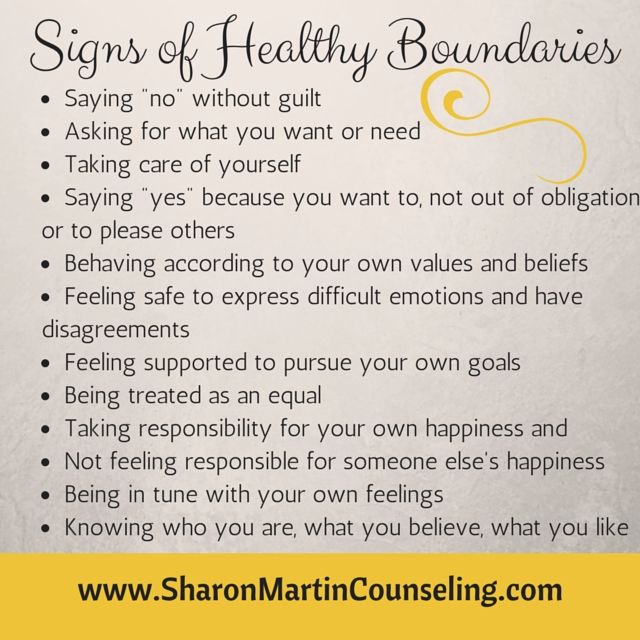 You want the other person to be clear on the change and the reason behind it.
You want the other person to be clear on the change and the reason behind it.
| Examples of shifting boundaries | |
| Initial boundary | New boundary |
| You initially have loose financial boundaries with family members and help them pay bills when necessary. | You lost your job, so you decide to set tighter boundaries to protect your financial well-being. |
| You often agree to work extra weekend hours to help a coworker. | You cut back on hours so you can spend more time with your newborn. |
| You allow a friend to vent their emotions to you daily. | The oversharing of information affects your mental health, so you set a limit on how often you talk about the subject. |
You and your partner have sex multiple times a week.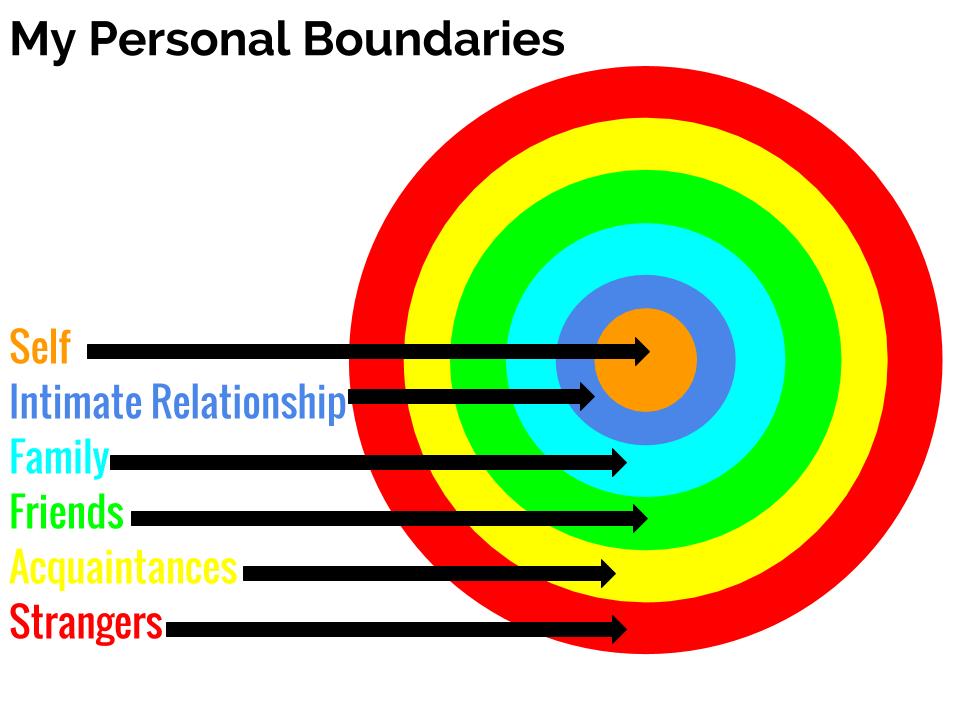 | Your sex drive changes, and you ask your partner if the two of you can focus on different forms of intimacy. |
| You allow your brother-in-law to temporarily use your garage for storage. | You need the space for your own needs, so you talk to him about relocating his items. |
Unhealthy boundaries
Unhealthy boundaries often tend to be either too rigid or too porous. Healthy ones fall somewhere between these two extremes.
- Rigid boundaries keep other people at a distance, even loved ones. Maybe you refuse to talk about your emotions with your partner or rarely set aside time to meet with friends.
- Porous or weak boundaries develop when you have a hard time saying “no” to others. For example, you might be too willing to take on all the responsibilities in a relationship. Or maybe you tend to overshare when talking with strangers.
There are many reasons why people may consistently struggle with unhealthy boundaries, such as:
Desire for control. Some people use boundaries to manipulate others. For example, a person might use rigid boundaries to stonewall conversations, refusing to engage with you until you do what they want.
Some people use boundaries to manipulate others. For example, a person might use rigid boundaries to stonewall conversations, refusing to engage with you until you do what they want.
Fear of rejection. If you’re afraid of a romantic partner walking out of your life because of your flaws, you might hesitate to be emotionally open with them.
Lack of experience with setting limitations. If you grew up surrounded by people who set poor personal boundaries, managing proper ones can be a challenge. You might think that invading other people’s personal space is normal because your parents and siblings regularly did it to you.
Overly agreeable personality. If you’re too eager to please other people, you might allow them to do things that make you uncomfortable. Maybe you regularly overcommit to activities or agree to help people because you simply want to be loved and accepted.
Low self-esteem. You might feel as if your needs and wants aren’t worth vocalizing, or that you don’t have an identity of your own. Instead, you prioritize what other people want. As a result, people fail to recognize your discomfort.
Instead, you prioritize what other people want. As a result, people fail to recognize your discomfort.
Boundaries and enabling behavior
When someone you love is dealing with addiction, you may need to shift your boundaries to avoid enabling their behavior. Enabling is when you shield someone from the consequences of their actions. For example, you might want to offer to pay their legal bills for a DUI or lie to other people to cover up evidence of a gambling or drug addiction. These kinds of actions may seem helpful in the moment, but you’re actually preventing your loved one from learning from their mistakes.
[Read: Helping Someone with a Drug Addiction]
Enabling isn’t limited to situations that involve addiction. It can happen in other mental health issues. For example, if your loved has social anxiety disorder, you may try to shield them from uncomfortable interactions by speaking up for them in pubic. The result is that they continue to rely on you instead of addressing the issue on their own.
How to set and maintain boundaries
While it’s usually best to start setting boundaries early on in a relationship, establishing healthy rules and limitations can help strengthen a relationship at any stage.
In many cases, you may not even realize a certain restriction is needed until you get to know each other more. For example, it might take you some time to realize that a coworker is regularly distracting you while on the job or that a romantic interest seems too controlling.
The following tips can help you establish boundaries if you are experiencing trouble communicating or connecting with a person in your life.
Setting boundaries tip 1: Know what you want in a relationship
Whether the relationship is romantic or platonic, it’s hard to have your needs met if you don’t know what they are. Reflecting on your values and beliefs is a good place to start.
Ask yourself questions like:
- What traits do I like to see in other relationships?
- What behaviors bother me?
- What qualities do I admire in others?
- What material items matter the most to me and why?
- How do I like to spend my time?
- What makes me feel fulfilled?
By gaining a more thorough understanding of yourself, you can begin to imagine the types of boundaries you need.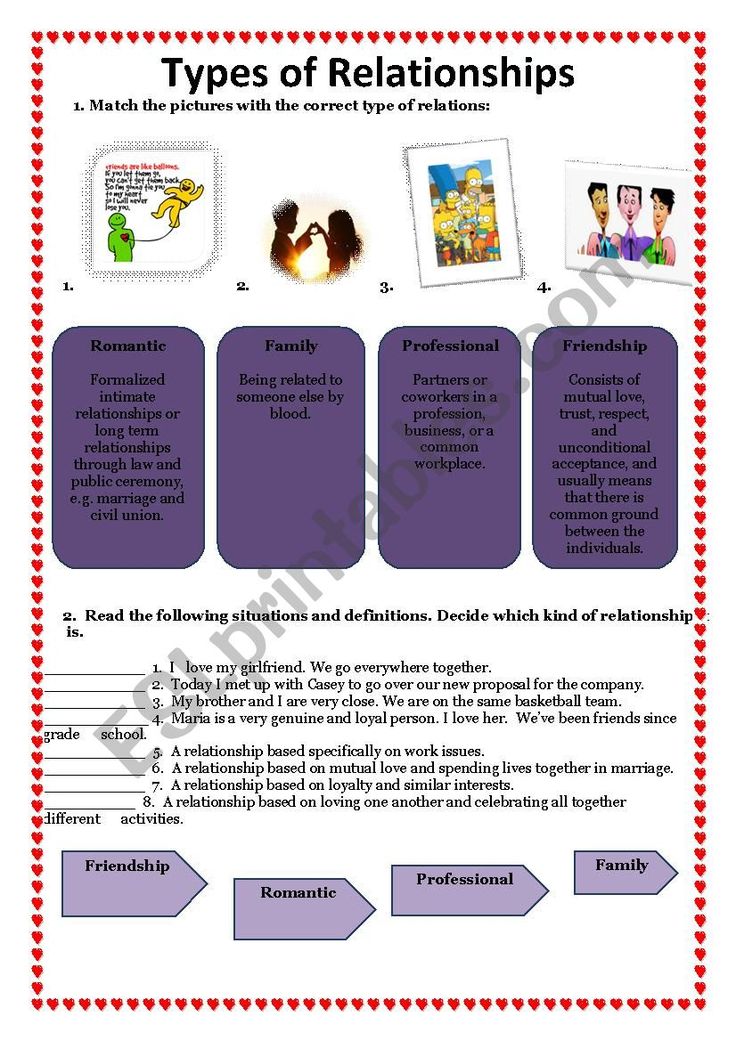 If you know that you value independence, you’ll likely want to set financial rules between you and a partner. If you value high productivity or privacy, you might set physical boundaries with coworkers who tend to wander into your workspace.
If you know that you value independence, you’ll likely want to set financial rules between you and a partner. If you value high productivity or privacy, you might set physical boundaries with coworkers who tend to wander into your workspace.
Assessing how you feel with someone
Thinking about how others make you feel can also help you identify necessary boundaries. After interacting with other people, reflect on your feelings by asking yourself questions.
- Did the other person make jokes or comments that made you feel disrespected?
- Did they do anything that made you physically uncomfortable or unsafe, such as raise their voice in anger?
- Did you feel pressured to do things that didn’t match your values?
- Did you feel overwhelmed by the person’s requests or expectations of
you? - Did you feel as if they were infringing on your sense of control or
infantilizing you?
A moment of reflection can help you decide whether you need to set limitations with the person in the future.
Tip 2: Talk to the person about your needs
Knowing how to effectively communicate your needs to others is important. Rushed conversations, poor wording, and vague requests can make it harder for loved ones to understand and respect your ground rules.
Consider timing. The best time to set a boundary with your partner is when you both feel relaxed and can focus on the conversation. If you’re mid-argument, try cooling down and circling back to the conversation once you’re both calm.
Be prepared. Nervous about discussing your needs? Write your points down before the discussion so that you can speak clearly about your needs.
Consider the delivery. Try to use “I” statements to convey how you feel. Avoid “you” statements, which can seem accusatory. For example, say, “I felt overwhelmed with the amount of work I had to take care of while you were away.” Expressing your emotions is a great way to start laying the groundwork for a relationship boundary.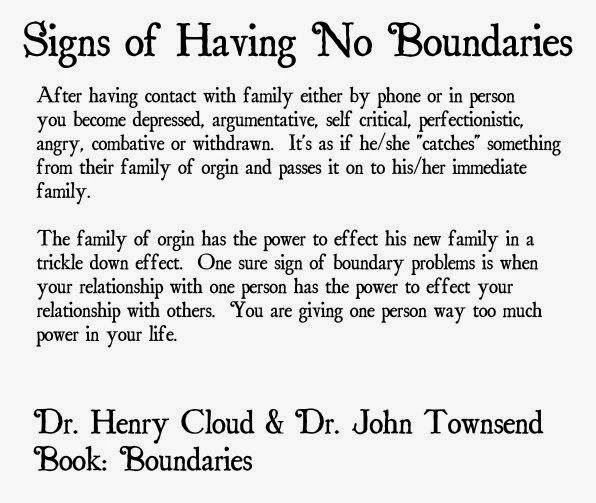
Be clear. A vague request, such as, “I’d like more personal space” may get the message across, but it’s better to be as clear as possible to avoid confusing the other person. Try, “I feel disrespected and uncomfortable when you come into my room unannounced. Please knock before entering.” A calm but firm tone lets the other person know you’re being serious but not disrespectful.
[Read: Effective Communication]
Address feedback. Depending on the boundary, your partner may have questions for you. Know that you don’t need to justify your needs or explain yourself, but doing so may help the other person understand where you’re coming from. You might even ask follow-up questions to ensure the right message was conveyed.
Feedback in romantic relationships
In romantic relationships, it’s especially important to ask your partner how they feel about a request, rather than guessing. Ask if it seems unfair or unusual to them. Or ask whether it conflicts with something they need or want.
Each of you has your own thoughts and feelings, and each person is responsible for putting these sentiments into words in order to be understood.
Let others take responsibility for their emotions. We often feel naturally inclined to care about how other people feel and react to our words and actions. However, you shouldn’t feel responsible for how the other person reacts to the boundary. For example, they might be upset that you’re asking for more “me time.” This could lead you to feel guilty or selfish. Remind yourself why you’re setting the restriction in the first place: You want some time alone to pursue your separate hobbies and avoid feeling emotionally crowded. Don’t feel you have to disregard your own needs.
Tip 3: Enforce boundaries
Not everyone in your life is going to respect your boundaries all of the time. A partner might accidentally cross one or difficult family members might do so intentionally.
Restate your needs.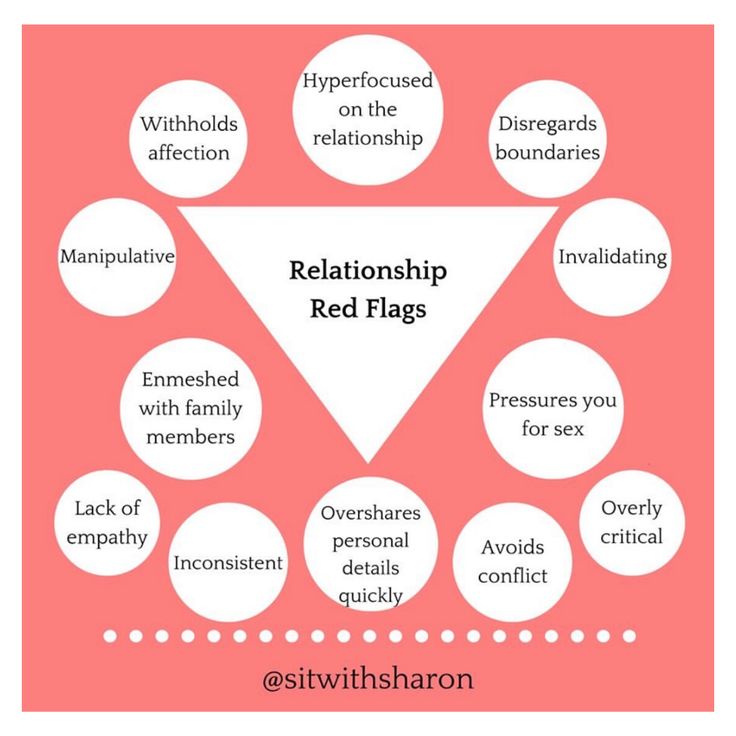 It’s possible that the other person didn’t understand your original request or simply forgot it. Be calm, firm, and clear about what you need.
It’s possible that the other person didn’t understand your original request or simply forgot it. Be calm, firm, and clear about what you need.
Have clear and reasonable consequences for crossing a boundary. If someone has a habit of talking over you, for example, you could say, “I feel disrespected when you talk over me. If you do that again, I'll have to end the conversation.”
Only state consequences that you’re willing to enforce. If you aren’t willing to follow through on a consequence, the other person will feel empowered to overstep your boundaries in the future. For example, if you tell your partner that you’ll take a break from the relationship if they keep lying to you, it’s important to actually follow through on that.
How to respond when someone else sets a boundary
You’re not the only one who can set boundaries. When someone voices a restriction, you might feel a sense of shame or frustration. Perhaps you feel like you’re being reprimanded or “put in your place.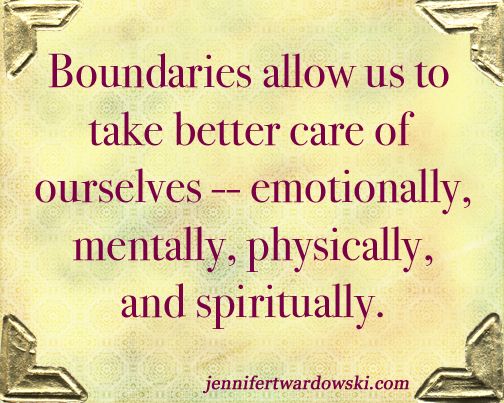 ”
”
You may notice some negative emotions rushing to the surface as you try to immediately defend your actions. Keep in mind that you are not losing anything but gaining knowledge of what makes the person in your life feel safe and happy.
Take time to breathe and listen. If you’re feeling upset, deep, slow breathing can calm your nervous system’s “fight or flight” response. This makes it easier for you to receive information rather than prepare for an argument.
[Read:Quick Stress Relief]
Accept that the person setting the boundary knows what is best for them. If something truly doesn’t work for you, communicate your needs so that you can both reach a compromise.
Remember that you both have your own way of processing and feeling emotions. Try not to assume what your partner needs before they say it out loud. Allow them space to voice their needs and wants.
Apologize when necessary. You’re only human, and we all make mistakes.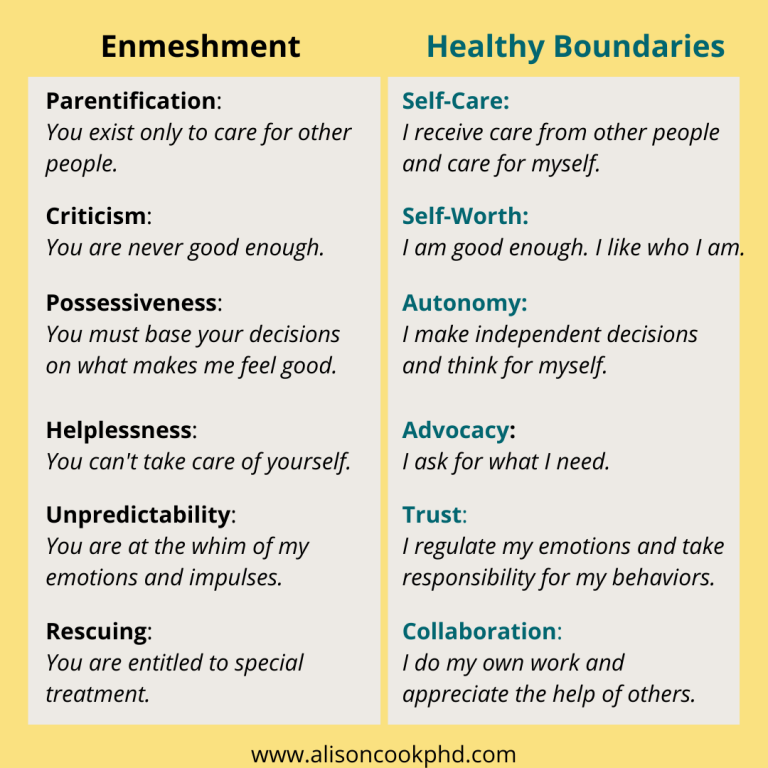 Maybe you accidentally overstepped a boundary by making an offensive joke or oversharing when you’ve been asked not to. When someone reiterates the boundary, be humble enough to apologize for your mistake. Ask for clarity if you feel you need it.
Maybe you accidentally overstepped a boundary by making an offensive joke or oversharing when you’ve been asked not to. When someone reiterates the boundary, be humble enough to apologize for your mistake. Ask for clarity if you feel you need it.
By learning to accept and acknowledge other people’s boundaries, you can start to think about how you can improve your own connections with others. Ultimately, effective boundaries can leave you both feeling empowered and result in a healthier, more satisfying relationship.
Author: Sheldon Reid.
- References
7 Tips to Create Healthy Boundaries with Others | Psychology Today. (n.d.). Retrieved June 5, 2022, from https://www.psychologytoday.com/us/blog/in-flux/201511/7-tips-create-healthy-boundaries-others
Boundaries: What are they and how to create them | Wellness Center | University of Illinois Chicago. (n.
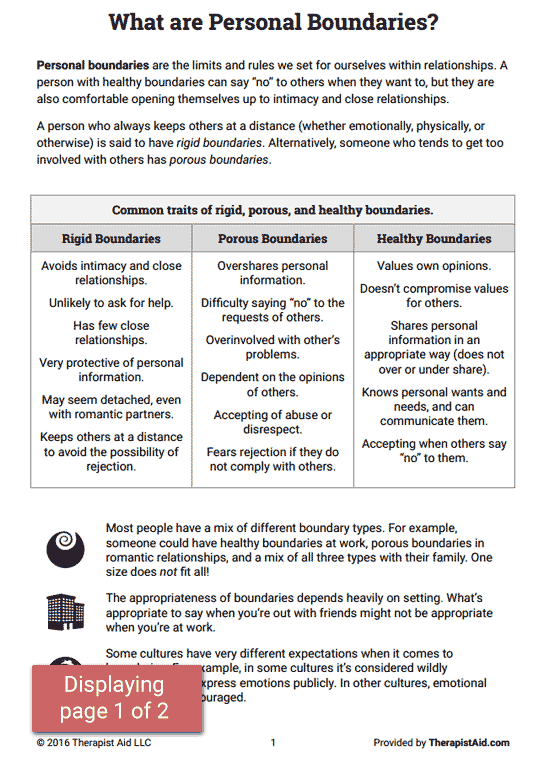 d.). Retrieved June 5, 2022, from https://wellnesscenter.uic.edu/news-stories/boundaries-what-are-they-and-how-to-create-them/
d.). Retrieved June 5, 2022, from https://wellnesscenter.uic.edu/news-stories/boundaries-what-are-they-and-how-to-create-them/Hornung, S. (2019). Crafting Task and Cognitive Job Boundaries to Enhance Self- Determination, Impact, Meaning and Competence at Work. Behavioral Sciences, 9(12), 136. https://doi.org/10.3390/bs9120136
Pluut, H., & Wonders, J. (2020). Not Able to Lead a Healthy Life When You Need It the Most: Dual Role of Lifestyle Behaviors in the Association of Blurred Work-Life Boundaries With Well- Being. Frontiers in Psychology, 11, 607294. https://doi.org/10.3389/fpsyg.2020.607294
When boundaries are crossed—MSU Extension. (n.d.). Retrieved June 5, 2022, from https://www.canr.msu.edu/news/when_boundaries_are_crossed
Boundary Setting Worksheet – Practice crafting “I” statements and other elements of boundary setting. (University of Arkansas)
Boundary Worksheet – Worksheet to practice setting boundaries in different situations.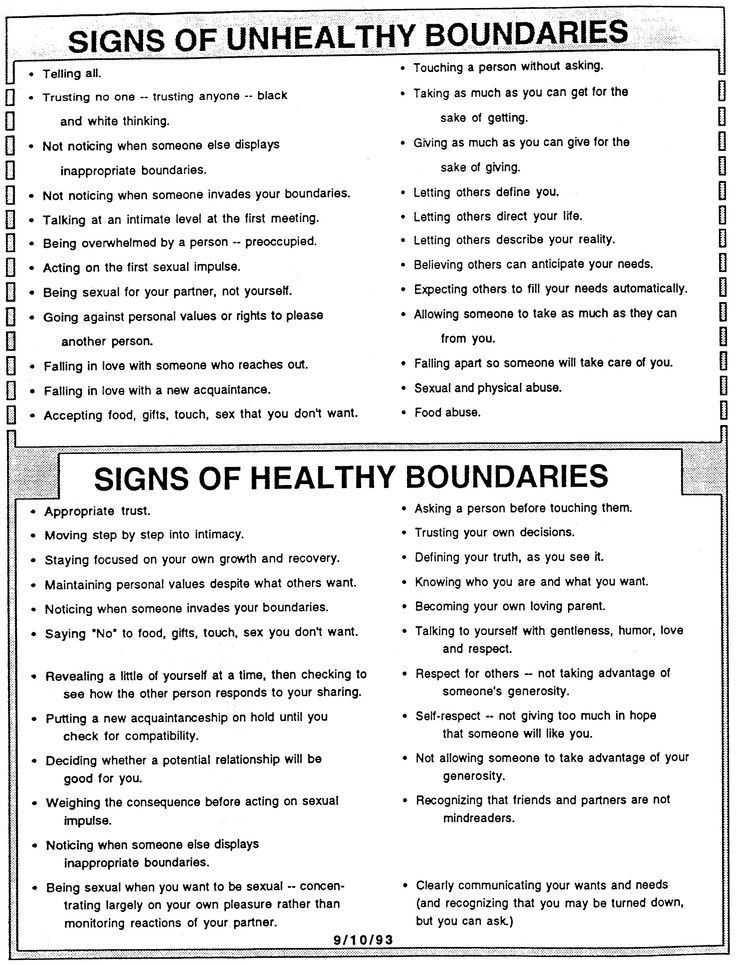 (Pittsburgh Essential Speakers)
(Pittsburgh Essential Speakers)
Four steps to setting healthy boundaries in your relationship – Tips for setting and maintaining boundaries. (Relate)
Last updated: December 6, 2022
Personal and shared boundaries in relationships: why they are violated and how to protect them
Most of us in relationships are faced with the fact that our boundaries are different from the boundaries of another, and this leads to tension and conflict. For example, if someone came to visit us and began to look into all the rooms, touch personal belongings ... Or if we ourselves demand a full account from the partner, where and with whom he spent the day, this may indicate a problem with the awareness of boundaries .
Another problem is that we consider other people, objects or spaces to be part of our personal territory. For example, from the victim in an accident you can hear: “My wing was scratched” - by this, of course, he will mean the wing of the car. Or a woman may feel that it is she who should decide for her 30-year-old son where he works and who he meets.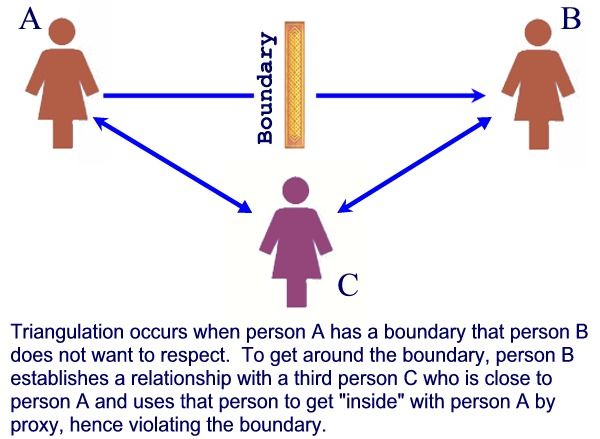
Often such a problem arises in marriage, when one partner begins to consider the other part of his territory and dictate his own rules.
Shared Boundaries
When we are in partnership, we have shared boundaries, such as the boundaries of a couple or an organization. The territory within these borders is no longer only ours - it is common, while inside it there are personal borders of each of us.
In a common area, it is important to take into account the boundaries and needs of everyone - the internal climate depends on this. No less important is the external climate - it depends on how much all participants cherish the boundaries of the common.
How can common boundaries be violated or destroyed?
- Send personal information about one of the partners or relations with him to the external field without consent. For example, share with your mother or girlfriend the details of your relationship with your husband.
- Invite someone to the common area without the consent of the other participants.

- Use the shared resources for your own purposes or at your own discretion without discussion with other participants.
- Make independent decisions about general matters. For example, to exclude a partner from making decisions about a child.
What to do if you violate another person's boundaries
First of all, be aware of where and how you allow your personal boundaries to be violated - perhaps because of this you feel entitled to do the same with other people. Start to notice how and where you violate the boundaries of someone else's space. You can notice this by the distance from others around you, their tension and irritation. If you notice a negative reaction, ask clarifying questions: “Do I understand correctly that you are uncomfortable talking about this, or did it seem to me?”
If you have already violated the boundaries and the person has moved away from you or there is a conflict, stop the offensive and take a few steps back, switch your attention to your interests and return to the question when it is appropriate and the emotions subside.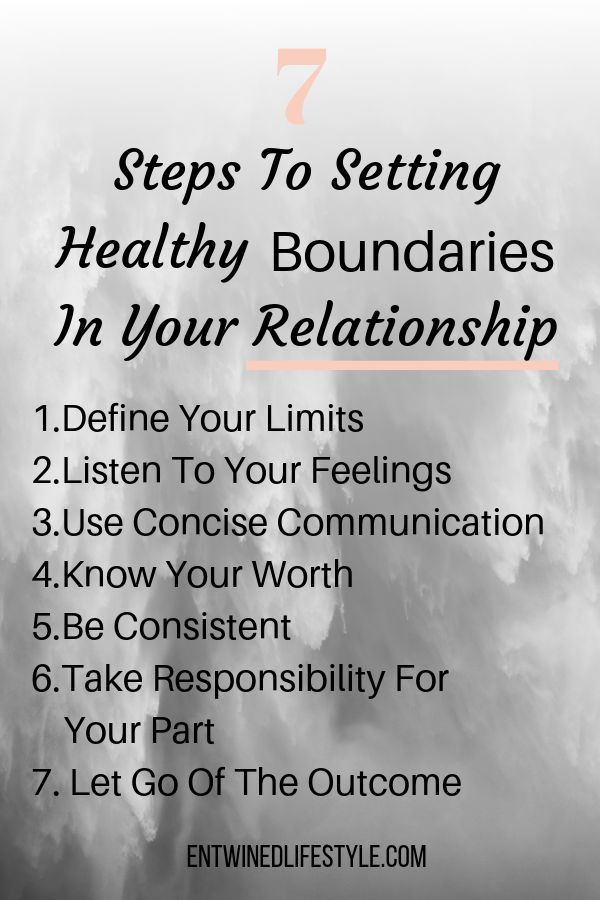
What to do when someone violates your boundaries
Sincerely, calmly, without accusations or claims, state your needs. Ask the interlocutor to behave differently this time. Do not ask him to change once and for all - this is not only impossible, but also causes resistance, since it broadcasts a message to the person that something is wrong with him. After asking for something specific a few times, you may find that the person behaves differently towards you.
You can also agree with the offender on a “code word” (“red”, “stop” or any other), which will mean that all actions at this moment stop. If the person does not hear your requests and continues to advance, try to distance yourself and, if necessary, enlist someone's support.
If you find yourself out of control because of pain or fear, continue to violate someone else's boundaries, or attract those who violate yours, try to learn effective communication skills.
A woman's personal boundaries in a relationship as a guarantee of a happy life
Interaction between a man and a woman is not only a pleasant process, but is often filled with many difficulties.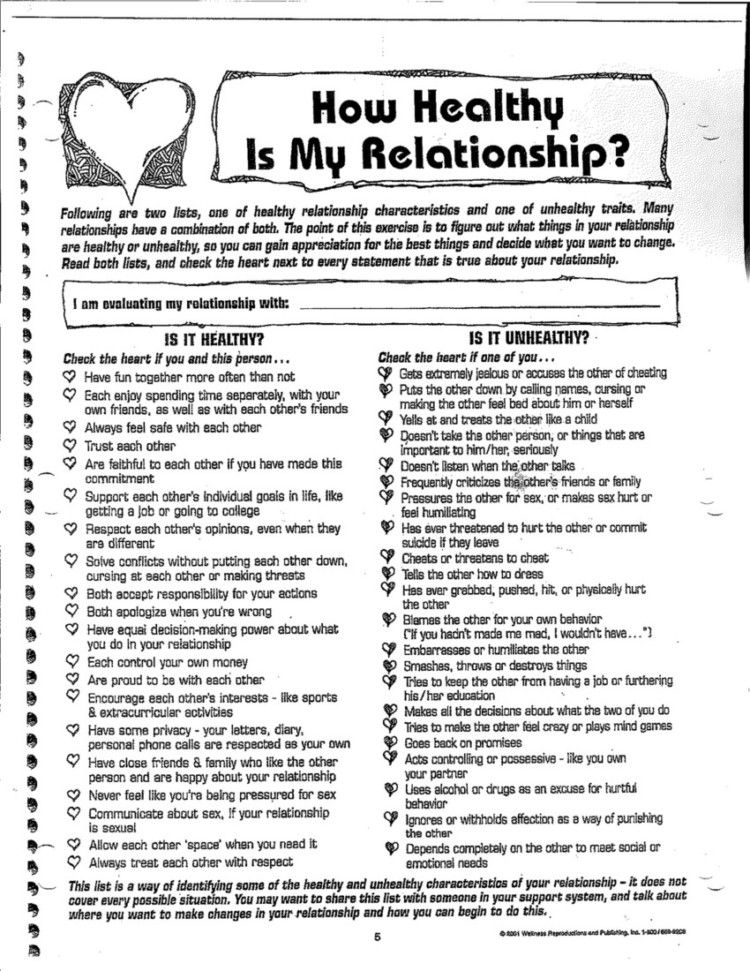 Two different sexes are different not only in physiological aspects, but also in everything else: in their views on things, in relation to the world, to themselves, to others.
Two different sexes are different not only in physiological aspects, but also in everything else: in their views on things, in relation to the world, to themselves, to others.
It is important from the very beginning of a relationship to build a foundation in which both partners will feel comfortable and safe. To do this, it is worth relying on building personal boundaries for each of them. This gives just the same feeling of satisfaction and harmony in interaction with a partner.
In this article:
The concept of personal boundariesExamples of personal boundaries with a man
The concept of personal boundaries
Photo NOTAVANDAL on Unsplash
Personal boundaries are an invisible feature of your own psychological space. This includes your emotions, feelings, attitudes, principles, as well as desires and needs. The construction of boundaries occurs from two sides: you yourself designate and establish them, and the partner respects and observes them.
Personal boundaries can be physical. This is when there is your physical space, the violation of which leads to discomfort and unpleasant emotions and sensations. For example, when you wash in the bathroom, you do not like when someone comes to you. It causes a storm of negativity in you.
Psychological boundaries are considered another type of personal boundaries. This is your comfort associated with personal experiences. Suppose your mother, coming to visit you, begins to scold that you are raising children incorrectly. Thus, it violates your personal psychological boundaries.
In this case, not only the mother is wrong in the situation. You are not respectful of your own. Indeed, in case you do not speak out your feelings and do not ask, not to communicate in such a manner, it only means that you allow those around you to treat you this way.
Unfortunately, we are not taught from childhood to respect our needs, we are not told how to build a personal line where outsiders are not allowed to enter.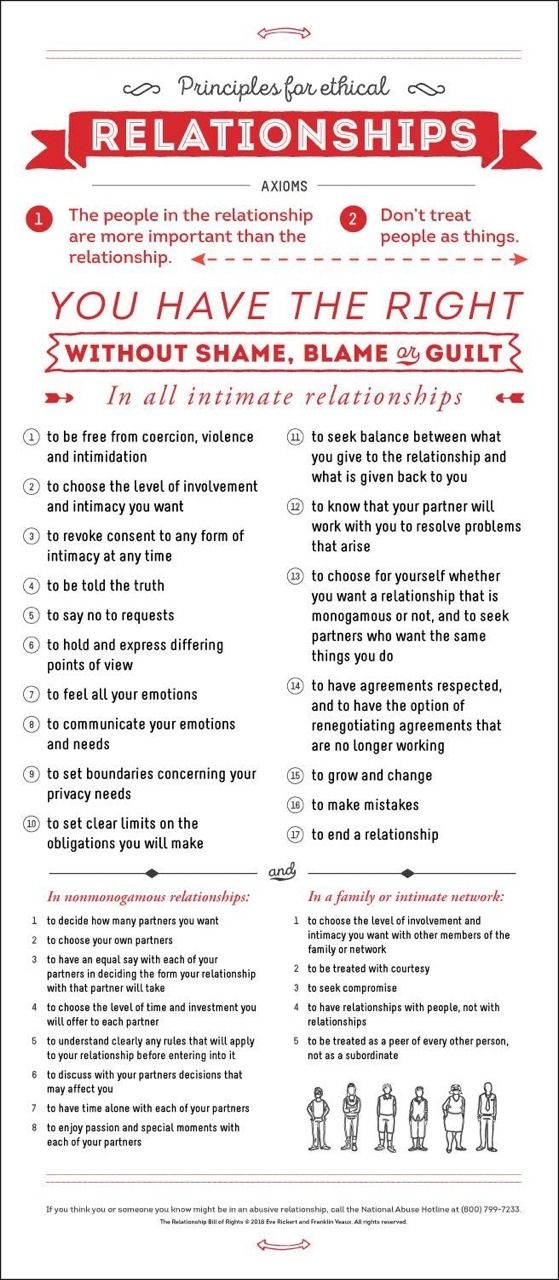 Moreover, our parents from childhood themselves violate the boundaries of the child, thereby showing that it is quite normal to manage the life of another person.
Moreover, our parents from childhood themselves violate the boundaries of the child, thereby showing that it is quite normal to manage the life of another person.
In order to better understand the structure of the formation of personal boundaries, we will plunge into the world of relationships with the opposite sex, because it is in relationships with men that this topic manifests itself most clearly and revealingly.
Examples of personal boundaries with a man
Analyzing life examples, we will try to understand what to do if your boundaries are mercilessly destroyed. To begin with, let's look at the identity of the violation of the physical, spatial personal.
- Personal items.
Many are familiar with the situation when a partner, without asking, and sometimes furtively, looks through personal things: phone, laptop, pockets. These are all pretty clear examples of violations of personal space.
Personal boundaries part 1: how to know your boundaries
Of course, there are relationships where partners have a habit of calmly using each other's phones.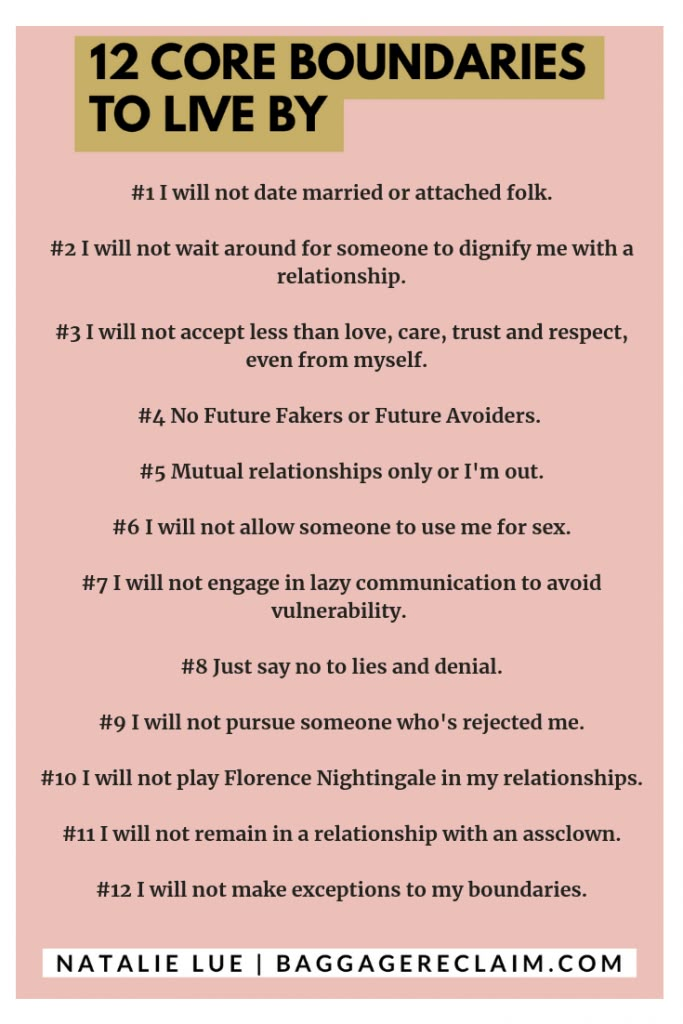 However, there are people for whom the presence of the personal and untouchable is of great importance. Respect for such a desire is nothing but respect for the space of another person.
However, there are people for whom the presence of the personal and untouchable is of great importance. Respect for such a desire is nothing but respect for the space of another person.
Personal items are not limited to gadgets. This can also apply to household items. For example, it is important for a woman to use only a personal towel, and none of the household should use it. Or a man asks not to use his mug.
Solution.
Violation of boundaries can lead to conflicts, so it is worth agreeing what rules will be established in your family. And try not to break them. In this case, it is not so difficult not to touch the other person's personal belongings.
- Personal space.
Everyone in the house should have a place where he can be alone for a little while. Even for children, they try to organize their own children's room. Adults also need it. Of course, financially it does not always work out for everyone to allocate a corner.
However, this may be purely symbolic.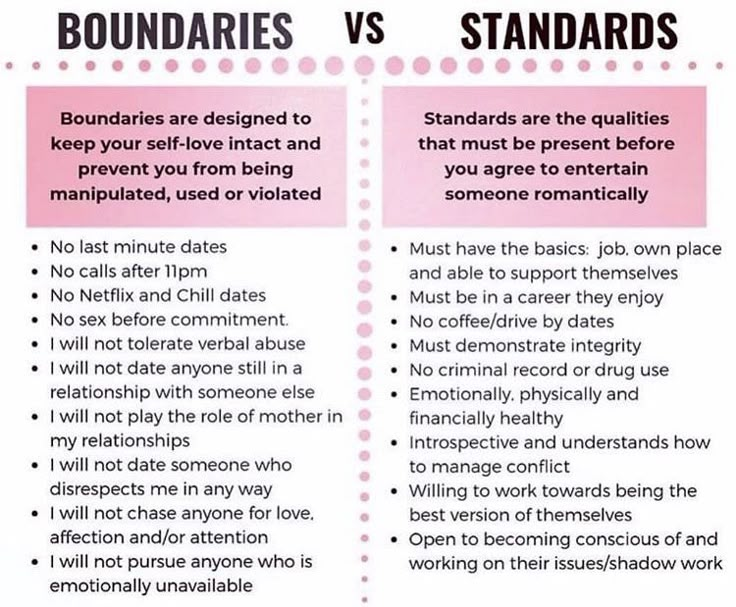 For example, for a woman, a bathroom can act as a personal space, where she can retire and enjoy pleasant self-care procedures.
For example, for a woman, a bathroom can act as a personal space, where she can retire and enjoy pleasant self-care procedures.
A man can take his rightful place on the couch and be alone with the newspaper for a while. The same goes for pastime. Each of the partners has the right to meet friends, go to a cafe or go fishing. This is also an example of personal space.
The partner must treat the partner's interests with understanding. However, it is important to observe the main rule - environmental friendliness. Your needs should not violate the boundaries of the second.
If, for example, a man is going to go out with friends for the second day in a row, and his wife stays at home, who stays at home with her children and does not rest at all, this already goes against the boundaries of a woman. And the desires of a man are more like a disrespectful and careless attitude towards a partner.
Solution.
At this point the best remedy is the negotiating table.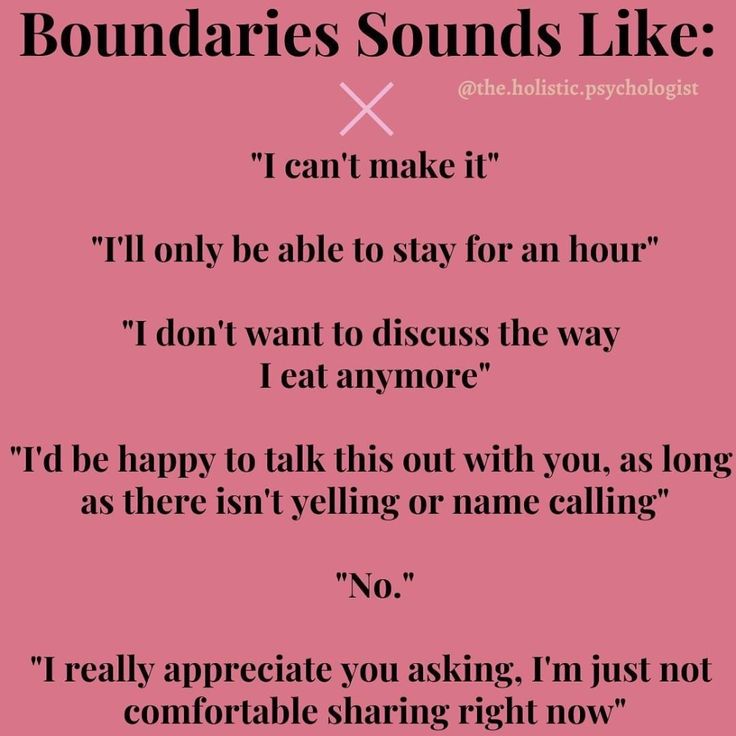 Conversations and agreements are able to define the boundaries of each and learn to coexist with each other without infringing on their rights and desires, and also without interfering with the needs of a partner.
Conversations and agreements are able to define the boundaries of each and learn to coexist with each other without infringing on their rights and desires, and also without interfering with the needs of a partner.
As for the psychological boundaries of each other, it is worth considering the following examples of such a phenomenon:
- Evaluation of a partner.
When giving your assessment of the actions, appearance or deeds of another person, it is worth thinking about his perception of your words. A person always perceives the words of another person purely individually. He may not care about one situation, and talking about another situation will cause resentment.
Let's say your husband casually says that you have gained some weight after giving birth. He may not have meant to hurt your feelings, but it was an incredibly painful statement for you. You flared up and said a lot of nasty things to him in response.
Another example, the husband tries his best to be in time and earn money, and when he comes home to sit with the children.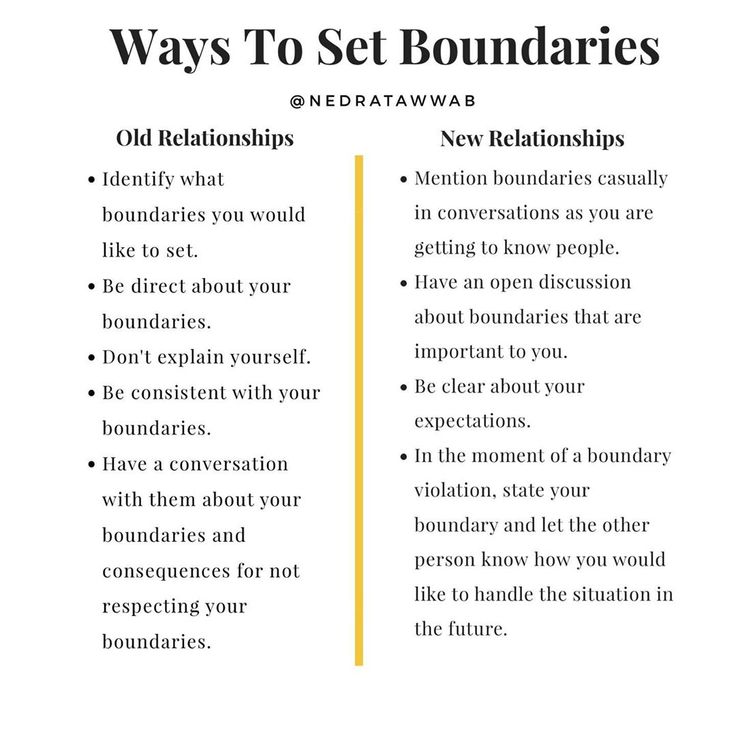 You, during a small conflict, throw an insulting "you do nothing." The husband simply loses the gift of speech from resentment, after which he does not want to communicate at all.
You, during a small conflict, throw an insulting "you do nothing." The husband simply loses the gift of speech from resentment, after which he does not want to communicate at all.
Solution.
It is often worth abandoning a value judgment in relation to another person, since the opinion is always subjective. A person can reason, do, try, think and feel in a completely different way.
Therefore, it is important to be able to communicate with each other correctly. To do this, it makes sense to speak out the points that will become taboo for discussion in your family. And the ability to be kind to your partner will allow you to maintain harmony and love.
- Only weighted actions.
Actions are no less important in relationships than words. Therefore, all actions must be considered. Joint life is built like this: you “sprout into each other” with your thoughts and feelings, at every step you take into account your partner. With all this, you remain an individual.